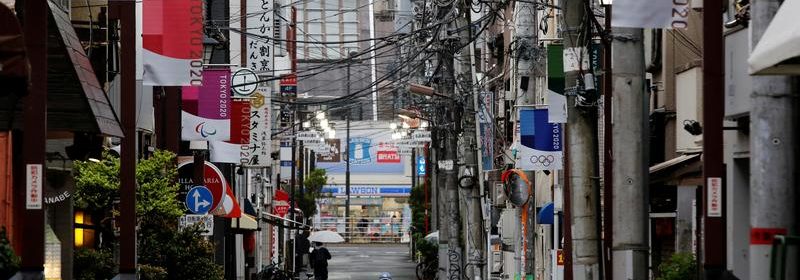Olympic host Tokyo hits record 2,848 COVID-19 cases, seeks more hospital beds

TOKYO (Reuters) – Tokyo’s 2,848 daily coronavirus infections on Tuesday were the Olympic host city’s highest since the pandemic began, officials said, as media reported that authorities had asked hospitals to prepare more beds for patients.
Japan has avoided the devastating outbreaks suffered by other nations such as India, Indonesia and the United States, but the fifth wave of the pandemic fuelled by the Delta variant is piling pressure on Tokyo’s hospitals.
By Sunday, 20.8% of the Japanese capital’s 12,635 COVID-19 patients had been hospitalised. A government advisory panel sees rates of less than 25% as a trigger to consider imposition of a state of emergency.
Tokyo has already declared a fourth state of emergency this month, to run until after the Olympics, and Japan made the unprecedented decision to hold the Games, postponed from last year by the pandemic, without spectators to stem its spread.
As hospitals admit more patients, Tokyo aims to boost the number of beds to 6,406 by early next month from 5,967 now, broadcaster TBS said.
Hospitals should look at pushing back planned surgery and scaling down other treatments, the broadcaster said, citing a notice to medical institutions from city authorities.
Health experts had warned that seasonal factors, increased mobility, and the spread of variants would lead to a rebound in COVID-19 cases this summer.
While vaccinations boost protection for the oldest citizens most likely to need emergency care, just 36% of the population has received at least one dose, a Reuters vaccination tracker here shows.
The inoculation push has recently ebbed amid logistics snags after having picked up steam last month from a sluggish start.
Many Japanese had wanted the Games postponed again or cancelled, fearing the influx of athletes and officials could fuel the surge.
Despite tight quarantine rules for the Games, 155 cases have emerged involving athletes and others.
A strict “playbook” of rules to avoid contagion requires frequent virus testing, restricted movement and masks worn in most situations.
Source: Read Full Article
